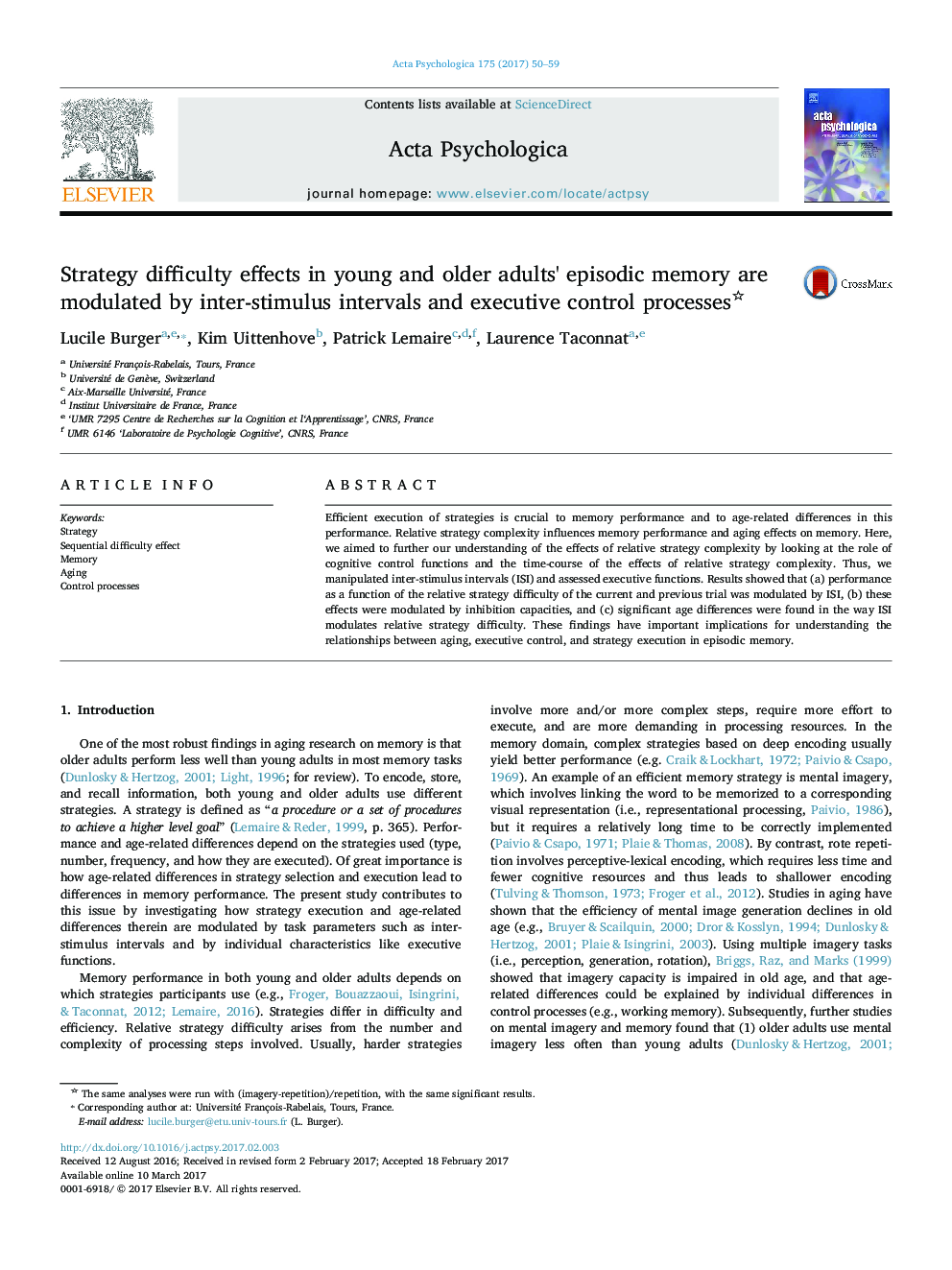| Article ID | Journal | Published Year | Pages | File Type |
|---|---|---|---|---|
| 5040311 | Acta Psychologica | 2017 | 10 Pages |
â¢The mental imagery strategy involves more processing resources than the easier rote repetition strategy.â¢Strategy sequential difficulty effect (SSDE) was reduced in long ISI only in young adults.â¢Effects of age, strategies, and SSDE on recall were observed.â¢Age-related differences in both relative strategy performance and SSDE were mediated by inhibition.
Efficient execution of strategies is crucial to memory performance and to age-related differences in this performance. Relative strategy complexity influences memory performance and aging effects on memory. Here, we aimed to further our understanding of the effects of relative strategy complexity by looking at the role of cognitive control functions and the time-course of the effects of relative strategy complexity. Thus, we manipulated inter-stimulus intervals (ISI) and assessed executive functions. Results showed that (a) performance as a function of the relative strategy difficulty of the current and previous trial was modulated by ISI, (b) these effects were modulated by inhibition capacities, and (c) significant age differences were found in the way ISI modulates relative strategy difficulty. These findings have important implications for understanding the relationships between aging, executive control, and strategy execution in episodic memory.
